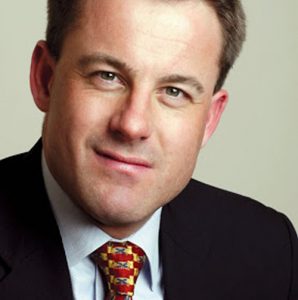In a recent family business event, a couple of young family business owners were asking questions around their role, finding their place and their individual voice. Questions motivated by their respective positions as heirs, beneficiaries, descendants, inheritors and ‘next-in-line’. Any one of these descriptions are representative of considerable responsibilities and accepted norms. Taken together, they represent the range and depth of the obligations, paths and expectations which together are captured in one word: successor.
A successor is defined as ‘a person or thing that succeeds to another’. That ‘other’ – in the case of family business – is usually the senior generation or ‘accessor’. Synonyms for successor further add to the mix: replacement, substitute, relief, descendant, beneficiary, heir, co-heir, inheritor, next in line. Each of these is a significant ’role’ in its own right.
As families, family business members and as those engaging with other families, we seldom hear or indeed use the title ‘successor’. Usually reserved for the individual who attains the ‘primary’ leadership role in the family and the company, ‘successor’ is redolent of an earlier era when others in the family (read nearly all) were expected to stand aside and render themselves invisible: the ‘ticket-of-leave’ child.
We now live in more inclusive, meritocratic and connected times, with variety in career paths and prospects a given. Family members are expected to be versed in ownership fundamentals, exemplars of the values and prepared to be involved. They are encouraged to be independent, ‘productive’ adults no-longer dependent on the benefits of ownership, while aware of the ‘family’ name and its association with ‘the’ business. This is a far remove from the single ‘involved’ successor.
‘Successor’ is useful as a more ‘open’ descriptor of members of a business owning family. Some family members will make their way within the family company; others will not. Not all ‘successors’ will be involved or within the family business. The ‘next generation’ title used by families and those who market to them, is inward-looking and exclusive. By contrast ‘successor’ recognises the increasingly open nature of family businesses, the families that own them and the individuals who make up those families.
 Impact of Ownership.
Impact of Ownership.
To fully appreciate and allow for this evolved view of the ‘successor’ we need to consider how membership of a family-in-business influences those who carry the name. This ‘impact of ownership’ manifests in four ways as being individually and collectively life-long, unique, complex and important.
Life-long.
Successor describes the condition of being a member of a family for life, regardless of ‘age or stage’ or the particular ‘generation’ an individual may be ascribed. Indeed, many families-in-business are made up of many simultaneous generations (next, next-next, next-next-next etc.), with wide age dispersals between different branches of the same family so as to render the title ‘next generation’ almost meaningless.
By extension the impact of being a ‘successor’ is life-long and not confined to any particular generation (younger, next or otherwise). Relationships with family members change over time, pass through various life-stages all under the umbrella of ownership. This is the reality which must be recognised and managed by ‘successors’, which never leaves or dissipates.
Unique.
The ‘impact of ownership’ on successors can depend on the scope and scale of the family enterprise (types of business), the family approach to succession and the availability (or promise) of independent wealth. All of these are particular to each family and to the business it owns. No two cases will be alike; as we often hear ‘all families are different’.
This ‘uniqueness’ will be evident and considered by those ‘external’ to the family and the business. Opinions will develop and attitudes form: those ‘outside’ do not see ‘next generation’, they see ‘successors’. Indeed, the assumption will be that the family member is already an ‘owner’, has concomitant influence and preferential access. As an external ‘assessment’ any one of these has the ability to be a miscalculation; taken together they can form the basis for assumptions and behaviours by others (i.e. non-successors) far removed from what would otherwise be the norm.
Complex.
The inherent ambiguity in overlap between family (emotion) and company (practicality) is a given within families-in-business (of which successors are a part). For successors, the existence and pull of competing commitments is a recognised impact of ownership, with a follow-on effect on personal needs and decisions. This they know. To manage both the family and (for some) the business as an owner, requires clear thinking, time and awareness.
For ‘successors’ issues and challenges increase over time as personal relationships become more numerous, situations change and individuals age. These and more changes all occur alongside the commercial imperative of the company and the demands of ownership.
Important.
Finally, decisions as to career choice, self-actualisation and contribution are influenced by and taken alongside the family company. All are important, and potentially life changing. Decisions involve continuous challenge and adaptation; alongside a family company they assume a new dimension which is difficult to manage. Those ‘experts’ in career choice and progression are poorly equipped to fully understand and advise. The best they can do is guide.
For some successors the availability (at no apparent cost) of inherited wealth negates the (apparent) need to work. Consequently, some choose not to. To deny oneself a career, with the associated possibility of growth and self-knowledge, not to mention contribution, is an important decision. Perhaps not the most positive impact of ownership, but a real one.
The decision – or not – to commit to continued ownership of the company is one faced by all successors who have inherited shares. Perhaps this is the most predictable ‘impact of ownership’ should the company survive and beneficial ownership.
 New Demands, New Thinking.
New Demands, New Thinking.
Continuity, sophistication and wealth of family enterprise, presents possibilities and new demands for family members. Succession planning is now wider than a single role. It includes the needs and skills of a number of roles: family, management, ownership and increasingly social and commercial entrepreneurship. These roles are varied, may be simultaneous and demand specific skills not all of which can be learned. Successors should be aware of the possibilities associated with ownership and willing to contribute at any point in their careers to a lesser or greater degree of ‘involvement’. Ownership is a movable feast.
Not all successors are involved. Many find a way external to the business (and sometimes the family). However, all must allow for the impact of ownership on their decisions, possibilities and – this is the tricky bit – on the attitudes and opinions of others.
The inexorable marketing of technical ‘solutions’ (Constitutions, Councils, Committees, Charters) continues as the recognised panacea for families and – by extension – the companies they own. Emphasis on ‘professionalisation’ recognises the leadership skills needed by families to make these bodies work, in some cases somewhat after the fact.
Structures and codes are all useful in their own way, but until we are more attentive to and in tune with the experience, skills and purpose of individual family members (successors) the commitment by them to undertake the specific (and often difficult) roles these bodies require will falter. Without this, efforts to govern families and businesses are neither effective nor sustainable.
The point of departure for families-in-business is to fully understand the impact of ownership on individual successors, to clearly inform them of the possibilities associated with that ownership and to put in place the appropriate supports to enable them integrate their purpose alongside, within or above that of the family company. Put individuals first; governance will follow.
Membership of a business owning family is well understood by successors – if not always well articulated. Many want to do the ‘right’ thing by their families, the business and themselves; otherwise they would not be in the room. For those successors at the recent family business event an awareness of the impact of ownership is a solid start towards clarity of the questions they have and direction towards the answers they seek.
 Biography
Biography
Philip is a leadership coach and mentor for family business owners and family business successors. He previously held positions as manager, Head of the Family Council and Family Director within his family business, over a 25 year period. He is currently writing a book on successor talent development within business owning families.
Philip can add value to families-in-business in the following ways:
- Coach or to family business owners or successors;
- Mentor to family business owners or successors;
- Assessment of successor performance;
- Successor Development Plans, Family Talent plan;
- Facilitated learning to cover family business management, ownership and leadership.
For additional information please see his website www.philipmackeown.ie or his profile on LinkedIn https://www.linkedin.com/in/philipmackeown/ He can be contacted on email at philip@philipmackeown.ie




